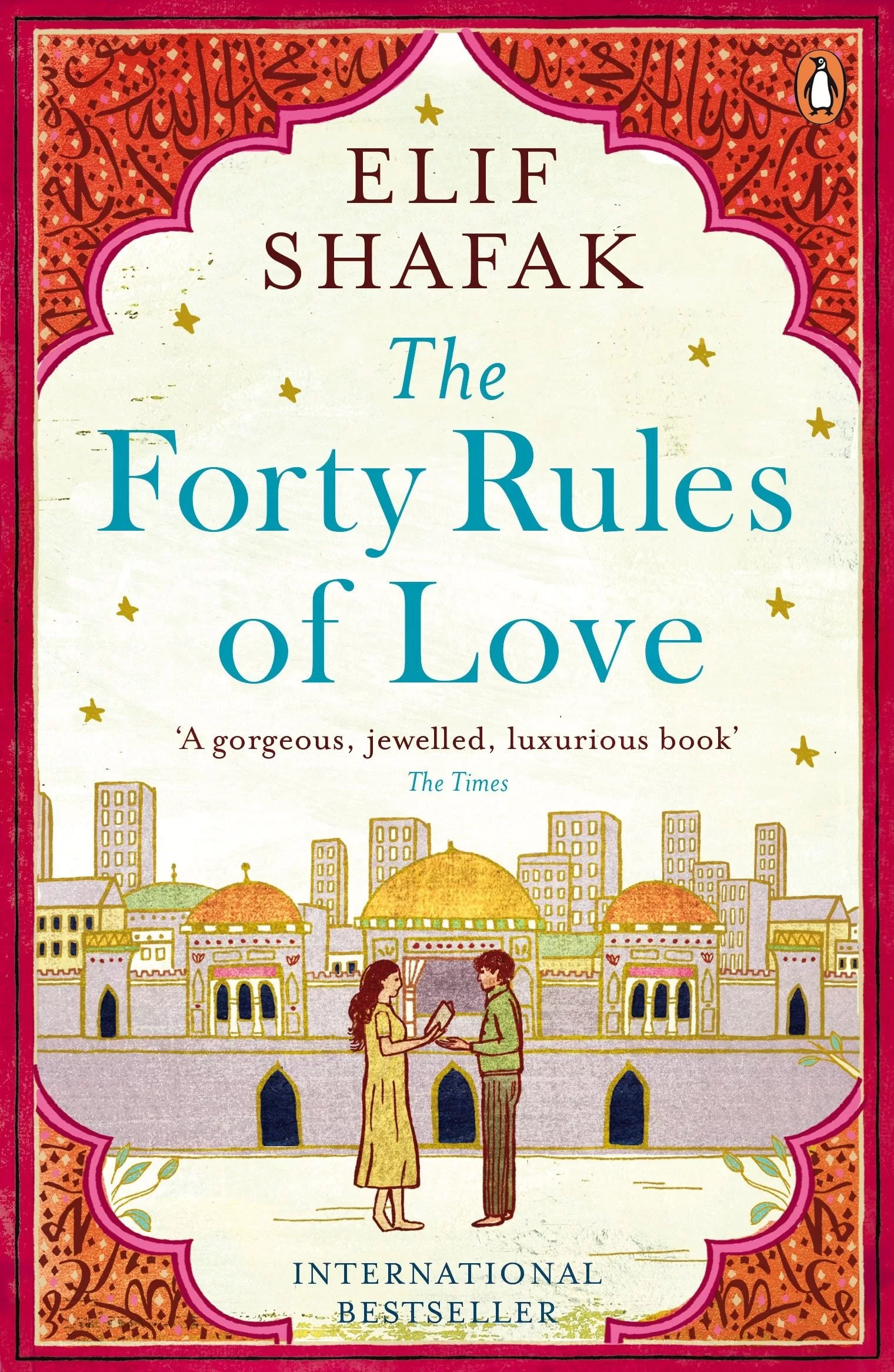Our book group choice for February 2025 is The Forty Rules of Love by Elif Shafak. A 40-year-old housewife, is hired to read a novel called Sweet Blasphemy by Aziz Zahara. The novel tells the story of Shams of Tabriz, a wandering dervish, and his meeting with the renowned poet Rumi in 13th-century Konya.
As Ella delves deeper into the manuscript, she finds herself captivated by Shams’s teachings on love, spirituality, and the search for truth. His forty rules challenge Ella’s conventional beliefs and inspire her to re-evaluate her own life and marriage.
The novel alternates between Ella’s present-day experiences and the historical tale of Rumi and Shams. Through their intertwined narratives, Shafak explores the transformative power of love, the universality of human connection, and the timeless wisdom of Sufi mysticism.
As Ella becomes increasingly immersed in the world of Rumi and Shams, she embarks on a journey of self-discovery, questioning her past choices and embracing the possibility of a new beginning.
Discussion Questions
- Did you enjoy the book?
- Elif Shafak presents love in diverse forms—romantic, spiritual, and platonic. How did the novel’s portrayal of these different facets of love resonate with you? Did any specific “rule” challenge or change your understanding of love?
- Was the story-within-a-story conceit effective?
- What did you make of the female characters?
- What is this book saying about the contrast between women in the West vs women in the Middle East?
- How do the two larger stories connect? Is it effective?
- Ella’s journey is one of self-discovery. How did her evolving relationship with Aziz and the “Sweet Blasphemy” manuscript affect her perspective on life and love? Did you find her transformation believable?
- It is a fictional story about a historical person, did it prompt you to read more about the people involved?
- Shams is a pivotal, often controversial, figure. What role does he play in Rumi’s transformation? Do you view him as a catalyst for enlightenment, a disruptive force, or both?
- How are different religions explored in the book?
- Which, if any, of the forty rules of love struck you as most profound or challenging? How do you see these rules applying to contemporary life? Are any of them in conflict with each other?
- What is the role of poetry in the book? Or mysticism?
Individual Ratings
Baljit's Rating 




Catherine's Rating 




Kelby's Rating 




Sue's Rating 




Hayley's Rating 




EmmaT's Rating 




DKB's Rating 





